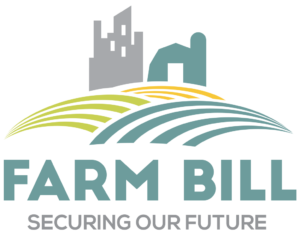What the new Farm Bill means for California agriculture
By Victor Martino

After months of partisan wrangling, the U.S. House of Representatives and U.S. Senate passed the 2018 Farm Bill. It now awaits President Trump’s signature. He’s expected to sign it into law before the end of the year.
Ironically, both the House and the Senate ended up passing the bill by a significant bipartisan majority, despite insistence by Republicans all year that they would hold up passage unless it included drastic reductions in SNAP and other nutritional aid programs for the poor.
The Farm Bill passed in the House Dec. 11 by a vote of 369-47, and in the Senate Dec. 12, 87-13.
The major cuts in SNAP the Republicans wanted were eliminated from the bill to gain passage.
Since the passage of the bill was over 3 months past deadline and the Democrats take over the House of Representatives in Jan. 2019, GOP House Majority Leader Paul Ryan made it clear to his caucus that if it didn’t compromise on SNAP, the Republican-led House wouldn’t be able to pass a Farm Bill before the end of the year, which meant the Democrat-controlled House would do so in 2019. It worked.
The Senate had worked out a bipartisan bill months ago, putting agriculture policy over political partisanship.
California farmers and agribusiness won’t find anything radically different in the 2018 Farm Bill compared to what’s in the current bill that’s been in affect the past 5 years. The Farm Bill is reauthorized every 5 years.
There are however some key provisions of particular importance to California farmers and agriculture in general in the new Farm Bill. I’ve identified and noted them below:
- Reauthorizes programs that support specialty crops, including the Specialty Crop Block Grant Program, the Specialty Crop Research Initiative and the Noninsured Crop Assistance Program.
- Requires the Department of Agriculture to establish specialty crop liaisons in regional USDA offices.
- Increases funding for organics, including permanent funding for organic research. It also continues funding the Organic Cost-Share Program and strengthens oversight of organic labeling.
- Preserves funding for major conservation programs and increases the carve-out to help producers meet California’s Ambient Air Quality Standards to $37.5 It also strengthens assistance to Western states for drought mitigation.
- Includes additional support for dairy insurance and risk coverage, expands coverage options for dairy farmers. It also refunds premiums paid under an old program that didn’t work for most farmers.
- Includes provisions to promote forest health on federal, state and private land, and continues programs that remove dead or dying trees close to homes and infrastructure, and encourages new markets for wood products to help fund dead-tree removal.
- Reauthorizes key export programs and includes an additional $500million in funding to help producers export more products and gain market share in foreign countries.
- Strengthens the future of rural communities by expanding high-speed internet access, fighting the opioid crisis through telemedicine and community health facility investments and improving rural drinking water infrastructure.
Growers of specialty crops in California won big in the 2018 Farm Bill.
The new Farm Bill — which is technically called the Agriculture Improvement Act of 2018 — provides significant funding for new technologies and research in the specialty crop area, which is something major Central Coast grower-shippers like Driscal, Taylor Farms, Ocean Mist Farms and others fought hard for in Washington.
Jim Bogart, president of the Grower-Shipper Association, a trade group, applauded Congress for “passage of a Farm Bill that includes the priorities of our organization and its members.”
The Farm Bill is receiving positive reaction pretty much across the board in California’s agricultural community and industry.
Organic farmers also won big in the Farm Bill and are heaping praise on Congress for passing it.
Key provisions of the bill for organic farmers include increased funding for the National Organic Program, and more dollars to ramp up the Organic Research and Extension Initiative, two things the industry group Certified Organic Farmers (CCOF) have had as priorities for organic farming in California.
Kelly Damewood, the Santa Cruz-based association’s incoming CEO, had nothing but praise for the 2018 Farm Bill in a statement she released.
She also praised the organic farmers who comprise the association, saying, “CCOF members showed up in a big way to build support for organic priorities in this farm bill.
Senator Dianne Fienstein, a Democrat who worked closely with Republican leaders in the Senate to craft a bipartisan bill, says, “The farm bill is a big win for all Californians. It invests in the crops we grow to help boost our economy, protects important nutrition programs that feed millions of American families, gives the forest service new tools to prevent and combat deadly wildfires and rejects harmful environmental riders.”
California is the largest agricultural producer in the nation.
The state’s ag economy is a mighty $47 billion.
California farmers produce half of the nation’s fruits, nuts and vegetables and 400 different agricultural commodities.
California is the nation’s and the world’s agriculture powerhouse.
The battle to authorize the 2018 Farm Bill was a brutal partisan one all year. Politics is often that way. Hardball.
In that spirit California farmers and the related food and ag industry shouldn’t be shy about the facts I describe above.
California is the nation’s agricultural powerhouse. Washington needs to be reminded of that regularly.
It’s impossible to feed the country without California-grown.

By Victor Martino

